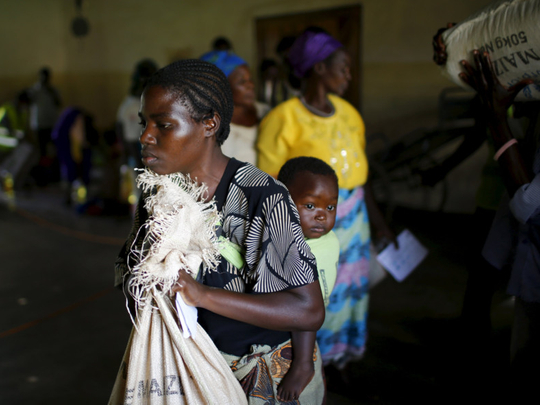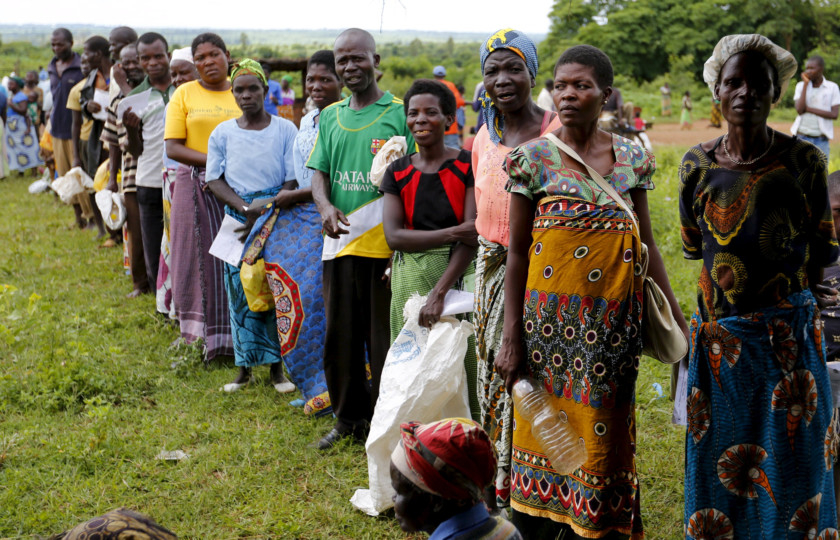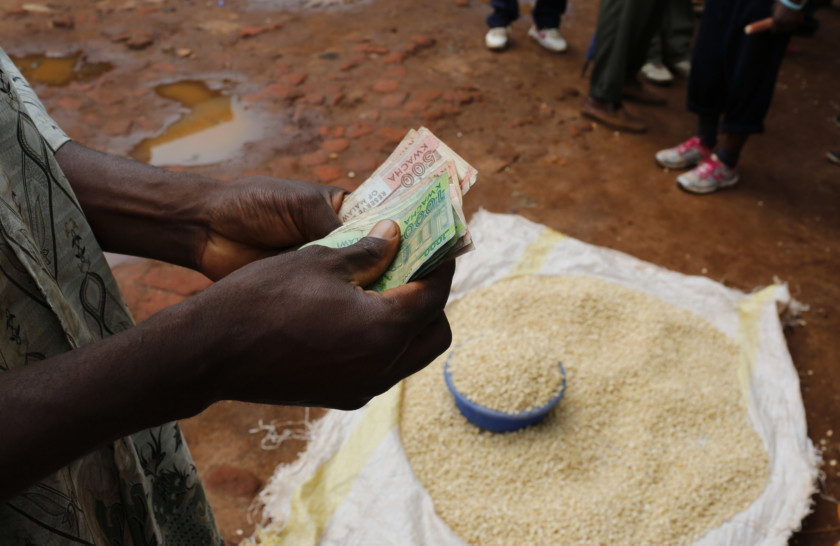
Lilongwe: As she walks along a dirt road in central Malawi, Louise Abale carries her precious maize wrapped in a brightly coloured cloth and balanced on her head.
Because of drought in Malawi and across southern Africa the grain has doubled in price in the space of a year, and now costs around 200 kwacha (70 fils; $0.28) a kilo.
Like many, Abale is struggling to pay for maize, a staple of the diet, and says her own — stunted — crop will not be ready for harvest for two months. “It’s too expensive, I have almost no money,” she said.
In all, 2.8 million people in Malawi, or 17 per cent of the population, now face hunger, according to the United Nations World Food Programme (WFP).
Drought and floods have hit the maize crop, exposing the fragility of gains which had seen Malawi’s rates of malnutrition slashed in the past two decades.
That progress was partly rooted in a fertiliser grant for small-scale farmers. But now the government, starved of donor funds following a graft scandal over two years ago, can ill afford such payments and says it must scale down the programme.
Ironically, policies aimed at ensuring basic food security are partly to blame for a cycle of rural poverty and aid dependency in this landlocked African nation, leaving the population vulnerable to climate shocks, economists say.
“There is no doubt that the fertiliser subsidy was only feasible due to donor support,” said Ed Hobey, an analyst at Africa Risk Consulting. “At best, it was unsustainable without continued donor support, at worst, it was an illusion built on aid.” Launched in 2005, the Farm Input Subsidy Programme (FISP) provides qualifying farmers — those with limited income but a plot of productive land — with two coupons which can be redeemed for two 50-kg bags of fertiliser. The recipients make a modest contribution, with the government footing most of the bill.Because the government is subsidising the production of maize — the main source of calories for many poor households — it also bans the export of the grain.
Maize production
The programme is credited by the government and some aid agencies with lifting maize production and cutting hunger.
The data appear to back that up. The United Nations Food and Agriculture Organisation (FAO) says the percentage of Malawi’s malnourished population fell to 21.8 per cent in 2012-14 from 45 per cent two decades earlier.
But FISP’s role here is difficult to untangle as most of those gains were made before 2005. Still, there is evidence of benefits, including indirect ones.
Stunting among Malawi children — a key nutrition measure — fell to 42.4 per cent in 2014 from 49 per cent in 2002.
But the programme has also had unintended consequences. The focus on food security, including the ban on maize exports, has discouraged investment in more productive commercial farming methods.
Limits scope
“Our concern with the export ban is that it limits the scope to expand production among more medium and large-scale farms if they are unable to market the surplus,” said Richard Record, World Bank Senior Country Economist, World Bank in Malawi.
In the long run such a ban stunts food production, especially in an age of increasingly high-tech farming, economists say.
FISP also diverted state funds from other areas. In all, FISP has accounted for as much as 9 per cent of government expenditure and over half the agricultural budget, leaving scant funds to invest in rural transport links and other projects that would benefit the countryside.
This retards development of other sectors in the farm value chain, such as canning, which can kick-start industrialisation, economists and analysts say. Donor funds for the budget have dried up in the wake of a scandal over two years ago dubbed “cashgate”, in which state officials siphoned millions of dollars.














